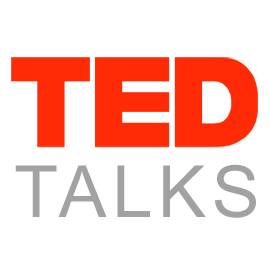If you're looking for new ideas and perspectives, and/or something to watch on your lunch break, then there really is no better place.
It's some really tasty brain food.
Creativity (what is it?)
This will be the first part of a series as I like to do. I could just say "why break the trend now" (like a smartalec), but really I'm slicing these things into chunks to make them easy to digest. So what's this all about again? Oh yeah, creativity.
What is creativity? Can you force or promote creativity? How does one become more creative? Good questions people, thanks for asking. Lets start with what it is...
Creativity, when it comes to the scientific world, is still steeped in mystery. From the Romans who believed creativity was a spiritual genius (or genie) that guided you, to the great minds of today who argue whether or not you are born creative. How our brains generate an original thought is still being researched, but what we know is clear. The act of being creative does have some distinct characteristics.
- Making Connections - When the mind is actively creating it draws connections between many different parts of the brain. This is basically a type of Synethesia causing us to see things from new perspectives by linking functionally segmented parts of the brain. Think of it like an orchestra playing a symphony, except the concert hall is your brain and sometimes members of the audience, the rodent population, and the water heater downstairs get involved.
- Recognition - Creativity is not really recognizing what an umbrella looks like, but that an umbrella also kinda looks like an urban jellyfish. The brain is already in an active state if trying to recognize things. Someone who is actively trying to be creative will embrace these fleeting ideas, making them better equipped to recognize a creative thought when it happens. Therefore making them more creative! In the distant past we used these skills to avoid predators, but now we use them to avoid boredom.
- Expression - The act of contribution is a deep primal urge. We want our tribe to survive so we give our ideas freely in the hopes of developing more effective survival. Somewhere along the lines this turned into the expression of ideas and emotions. Sharing the human experience is a highly cognitive act, and piggybacking on this behavior is the ability to share experiences that only take place inside the mind. It's the next best thing to telepathy.
I want to make the point that creativity is one of our higher functions and still has a aura of mysticism to it. But it's possible to take charge of your creative process and become more effective at being creative simply by understanding the effect without the cause.
Looking at these bullet points may have you thinking, "Sure, that's what it is, but how do I get me some?" If you could somehow understand a routine or behavior that is likely to facilitate more creative thinking, it's very possible to accentuate and refine your own inherent creative power.
But I'm going to cover that next time when I discuss whether or not you can force or promote creativity.
Thanks for reading.
 |
| This is a composite sketch I did from some photos I took. |
 |
| This is a robot dude |

No comments:
Post a Comment